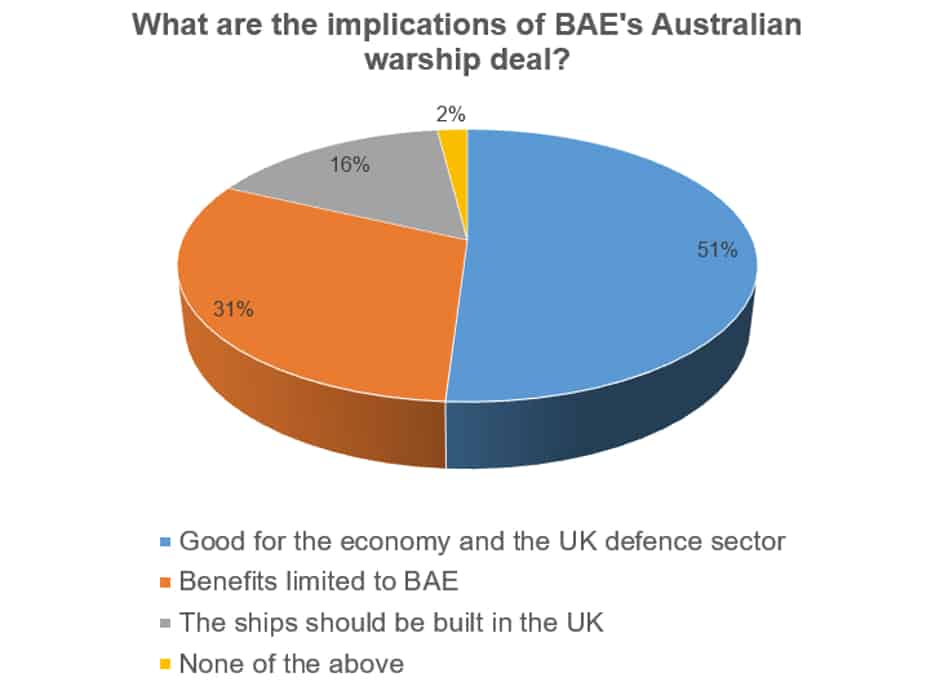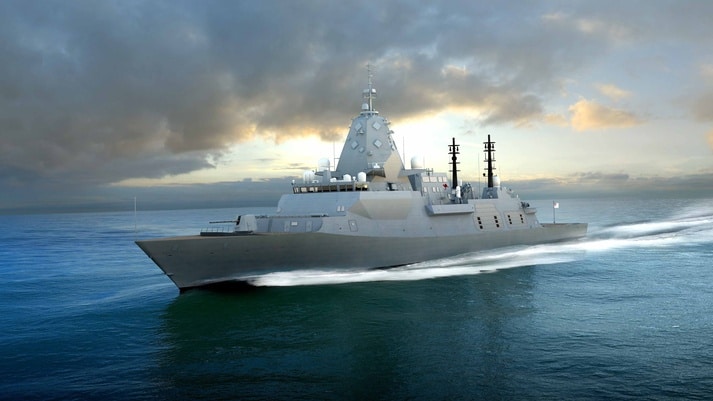
A review of Britain’s defence industry has found the sector to be one of the world’s strongest with an annual turnover of £22bn.
The review, published on July 9, 2018 and carried out by former defence minister Philip Dunne, found that defence supports 260,000 jobs and accounts for over £7bn of exports per year, which brings us to last week’s poll and BAE Systems’ £20bn contract to supply warships to Australia.
The contract to supply nine ships based on the Type 26 warship was won against competition from Spain and Italy and represents the first time since the 1970s that a British frigate design has been exported.
The deal has been seen by some as a major win for the UK defence industry, but others see it very differently. The ships will be built in an Australian shipyard using suppliers from across the nation, and the GMB union sees the deal as one that exports jobs rather than ships.

With this in mind, we asked what poll options most closely reflect your opinion on this major contract win, and over half (51 per cent) agreed that it will be good for the economy and Britain’s defence sector.
Just under a third (31 per cent) of the 665 respondents thought the benefits would be limited to BAE Systems, followed by 16 per cent who think the ships should be built in the UK. The remaining two per cent opted for ‘none of the above’.
Comments received so far are largely inclined toward favouring the deal, with Roger Twelvetrees writing in to say: “Excellent news! This deal will enable BAE and its suppliers to enhance their technology by R&D and also gain applications experience in the field, and all at the RAN’s expense. Their world leading…products are thus maintained without private venture investment that would be clawed back on future projects, potentially making such bids uncompetitive.”
“I understand that several other countries are looking to buy similar capabilities, so of course it’s good news that we’ve won this competition against all the other bidders,” added Richard Masters.
Echoing these sentiments, Stephen Rose said: “Of course it benefits the UK because it strengthens them as a defence contractor that can play on the world stage.”
What do you think? Keep the debate alive using Comments below.




Project to investigate hybrid approach to titanium manufacturing
What is this a hybrid of? Superplastic forming tends to be performed slowly as otherwise the behaviour is the hot creep that typifies hot...